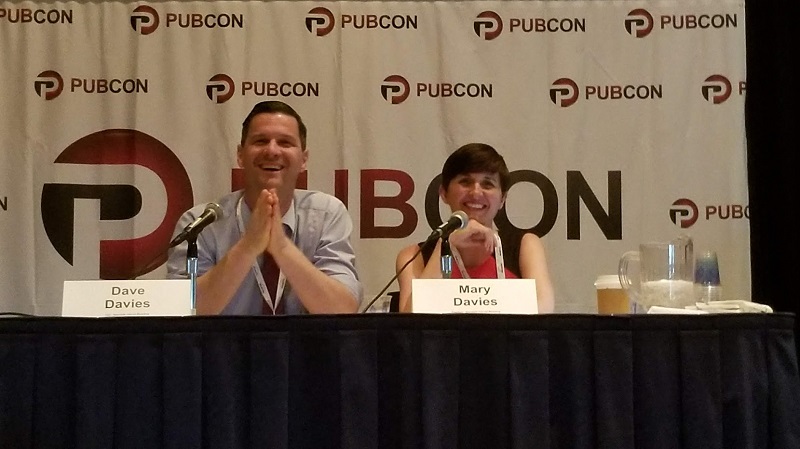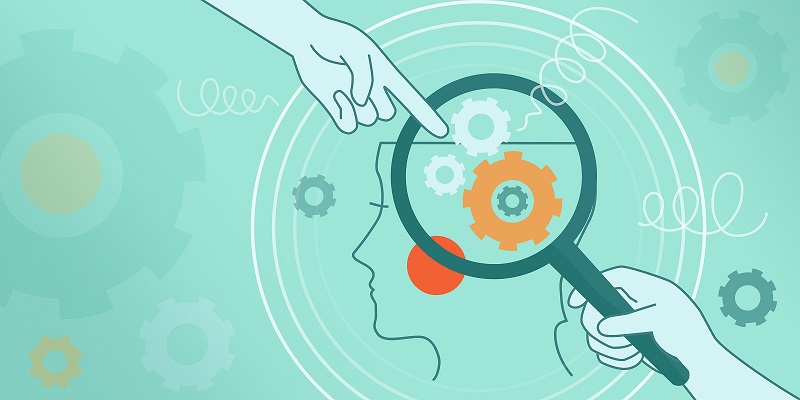Let’s talk about living with mental health challenges.
It’s a hard discussion because the number of challenges and the impact they have are varied and each person is unique.
One thing that seems to be very common among them all though, is that they are handled more easily with a strong support system.
I could not possibly list them all here, but multiple studies have reinforced the important role that supportive friends and family play in protecting others from mental health illnesses and in helping those with them.
A couple of studies (and a resource site) I find interesting are:
- Mental health and social relationships
- Do you have my back? Perceived social support, loneliness, and its impact on mental health outcomes
- Family & Caregiver Support
To be clear, there are a bunch of others and I only included what I found most interesting related to my research around this article.
It is not the only information, nor the most helpful information I found, related to the specific mental health challenges I live with.
So, what mental health challenges am I referring to?
Anxiety and OCD.
But not my own.
I just live and work with the person who lives with them.

And it isn’t easy.
But it’s definitely worth it.
The Problem With Being ‘Normal’
I consider myself pretty “normal” from a mental health standpoint.
There are two central problems with being “normal” in this situation:
- It’s difficult to understand that the way I experience the world is not the same as someone with mental health challenges.
- Nobody I know is “normal,” including myself. So not only am I battling to understand that which I cannot, but I’m also battling a belief that I’m somehow a model for what the right way to think is.
These two problems exacerbate an already trying situation.
Living With a Mental Health Challenge Is Hard
And I’m not talking about the person with the condition here (though that certainly would be too), I’m talking about for me.
It’s hard for me.
Negative feelings that can interrupt my “regularly scheduled patterns” include but are not limited to:
- Fear
- Annoyance / Frustration
- Sadness
- Loneliness
- Confusion
- Uncertainty / Instability
And I don’t imagine that I’m alone.
I’d ask for a show of hands as to who identifies with what I’m talking about but it’s an article, not a conference session so you’d look silly, it would be hard to use your mouse, and I’d get nothing out of it.
But if you need to stretch, go ahead and use this as an excuse.
Now, back to the point.
Living as a support person for one living with mental health challenges is hard.
It was hardest early on when I didn’t understand what I was dealing with, and in a lot of ways, didn’t even know I was dealing with anything at all.
My belief that I was “normal” and that the world and others should function and be as I do (or at least some model of it) hurt me… and Mary.
It caused hurt and confusion. I would get annoyed, frustrated or just downright mad at something, something she couldn’t help.
Then guilt would follow at reacting in a way that I did, despite not really understanding what was going on.
And the cycle would continue.
Education Helps

Education helped me and while I’m trying not to give advice, one can hardly go wrong by saying, “Knowing what you’re dealing with is even more helpful in relationships than it is in search marketing.”
And it is.
I’ve tried to educate myself on what it’s like to live with the mental health challenges Mary has through some reading, and just listening.
I can say that doing so has made my reactions, both internal and external, far better.
I get less frustrated at things I don’t understand.
I get less anxious myself about not knowing how she will react to something, that I view as mundane.
I feel less alone in having to tackle things.
I feel less confusion, in at least understanding that there are things that I simply cannot understand and, in many ways, she can’t either.
And with education, I can view the battle as a collective one.
Where once I viewed things as a win-lose (and by extension – wanted Mary to lose because I wanted to win a stupid thing like organizing dishes), education gave me better tools (not perfect ones – not even close) to view things as goals we shared with an outcome where we both win or at least tie.
But It’s Still Really Hard
But it’s still hard.
Knowing what you’re dealing with does not make it easy… it just makes it comprehensible.
And knowing how you should react does not mean you do, or even want to.
Sometimes you just want things to be the way you want them to be. Because you’re “normal” and things around you should be too.
And from this, the hardest part I deal personally with is frustration. Frustration that my world is not always simply “the way it should be”.
But…
There Can Be More Good Than Bad
I am telling my own story here, and this may or may not translate or resonate with others.
Once I understood what mental health challenges Mary was dealing with and in some ways, how they impacted my life, with the bad also came the recognition of the good.
When I understood that anxiety over scarcity made Mary take actions I never would to do things like not waste food or other items that in my mind were not worth saving, it not only helped me get less frustrated (really … why do I care if my freezer has carrot peelings in it) but also helped me put credit where it’s due (she makes a darn fine veggie soup stock and the best soup I’ve ever had).
Something I’d never have had if she was “normal like me.”
More on some of the other benefits coming, and some simply indescribable.
All this got me wondering if others might have similar experiences they wanted to share.
I asked and got two amazing volunteers. People who were willing to share their experiences, so this article might have a little depth for those in a similar spot.
PPC rockstar Navah Hopkins is one. Amazingly, her partner David was the second.
I asked them both a few questions, questions I too will answer for lateral context below.
Here’s what they has to say …
Navah Hopkins on Living with Mental Health Challenges
What mental health challenge(s) does your partner live with?
Navah Hopkins (NH): Anxiety and mild depression
How does this impact you?
NH: It’s really heart-wrenching when Dave gets an anxiety attack because it feels like he’s having a heart attack.
I always wish I could take the pain on for him and we have to be careful about what activities we do (for example, going to a movie has a 60% chance of inducing an anxiety attack even if there’s “nothing” stressing him out).
I have to be careful what topics I bring up. For example, I know money stresses out my lovely, so I try to sort all monetary things myself.
I also know that when I bring up a thing that frustrates me, it’s possible it will be taken as an attack.
For this reason, I sometimes will privately rant the things I’d otherwise openly discuss because it’s never so important it’s worth making him feel bad about.
That said, sometimes I lose my temper and will voice the things I try to keep to myself out of a desire to protect his feelings.
What tools or techniques do you employ to help you … help them?
NH: Whenever Dave is having a panic attack, it’s important to get him somewhere warm.
We talk through the fact that he isn’t actually suffering from a heart attack and we try to eat healthy so his body can combat the mental trap.
We also both have a steady supply of theanine and kava tea in the house.
When I see Dave is stressed out I’ll make a point to cuddle up to him or give him a big hug because the combination of touch and warmth is helpful.
What tools or techniques do you employ to help you … help yourself?
NH: Theanine and kava tea are super helpful for me. We also have become really good at being partners together, but also really good at owning our unique interests.
He knows I don’t really like loud noises, so doesn’t push me to go shooting with him and his family/friends.
I know he doesn’t like dancing/concerts, so I don’t drag him to every single one (and when he does come, I make sure he has a comfortable area that’s his).
By owning our compromise moments, we’re able to support each other when we need help, and empower each other to be strong vibrant members of our respective communities on our own merits.
What advice would you give to those who live with a partner with the same mental health challenges as your partner?
NH: Never ask, “what’s wrong.” Offer warmth and support, but also empower your partner to own their path.
I like finding ways to help Dave know that he’s appreciated and loved, and let him tell me what he needs and how he needs it.
What are the benefits of living with someone with the mental health challenges your partner has?
NH: Dave has helped me discover patience in ways I never would have if I was “allowed” to get upset at everything that frustrated me.
Instead, I’ve developed perspective and by having to weigh whether bringing up a thing is worth potentially making him feel bad, I’m able to take a breath and be more positive.
David Hopkins Answers the Same Questions
What mental health challenge(s) does your partner live with?
David Hopkins (DH): Anxiety, Intense, excessive, and persistent worry and fear. May be accompanied by a fast heart rate, rapid breathing, sweating, and feeling tired with bodily pain in extreme cases.
May be caused by everyday situations or pent up unresolved issues that may seem causeless.
Depression, ranges in seriousness from mild, temporary episodes of sadness to severe, persistent depression.
- Feelings of sadness, tearfulness, emptiness or hopelessness.
- Angry outbursts, irritability or frustration, even over small matters.
- Tiredness and lack of energy, so even small tasks take extra effort.
- Anxiety, agitation or restlessness.
- Slowed thinking, speaking or body movements.
- Feelings of worthlessness or guilt, fixating on past failures or self-blame.
- Trouble thinking, concentrating, making decisions and remembering things.
- Unexplained physical problems, such as back pain or headaches.
How does this impact you?
DH: I am fairly empathetic (attuned to the emotions of others) an example of this would be when people say you can cut the tension with a knife.
Living with a person who has anxiety can be like a minefield when not managed properly. Simple requests become bombs with timers and you don’t know how long to have before an explosion.
The problem with anxiety is you don’t always know what the triggers are. Therefore without warning, you can shut down or have an outburst.
What tools or techniques do you employ to help you … help them?
DH: I focus on treating the Depression. I have noted a decrease in anxious behavior by doing this. The things I do to help my partner with depression are as follows.
Clean the home and try to stay on top of household upkeep. If your living space is nice, you feel better. I do nice things for her. I like to build things.
I know it’s what I’m good at so I use that skill to make things for my partner. Thinks like art, furnisher, landscaping, things I know will bring her joy. I also act as a sounding board for them.
To allow them to talk out their thoughts with no judgment and offer useful solutions only when they need one. I try to shoulder life’s burdens equally and litten their load when they struggle.
What tools or techniques do you employ to help you … help yourself?
DH: I help myself by giving myself my own space. Take on a hobby of my own. Try to relax, meditate and achieve my own inner peace.
Some additional tools I use to take the edge off of a bad day would be Kava tea, L-Theanine, and Cannabis. These tools plus regular meditation have helped me so much over the years.
What advice would you give to those who live with a partner with the same mental health challenges as your partner?
DH: Give them time. Give them space. Do the best you can to fix and make their environment better.
What are the benefits of living with someone with the mental health challenges your partner has?
DH: The best part would be that they get what you are going through and have a better understanding of what they can do to help.
My Answers to the Same Questions
What mental health challenge(s) does your partner live with?
Anxiety and OCD.
How does this impact you?
As mentioned above, it can be very frustrating and can feel lonely.
There are things I feel I need to tackle alone, just to save Mary the anxiety of it and by extension, save me having to talk her through the stress it will cause on top of the task itself.
Basically, sometimes loneliness and stress can be better or at least more predictable than what may come from not shielding my partner.
That said, it can be hard not knowing where this also exists in other relationships.
I have to think that the mental health conditions are simply like Miracle Grow for the reactions, but that couples not dealing with these challenges also go through similar things, though perhaps in a more muted fashion.
What tools or techniques do you employ to help you … help them?
The only thing I know to do is try to remain calm and reassuring during anxiety, and try to just let the OCD tendencies slide by.
I have the luck of not living with someone with crippling OCD.
I have no idea what that would be like. I only have to live with a mild (to me) version that is inconvenient and often frustrating, but rarely intrusive.
What tools or techniques do you employ to help you … help yourself?
Education has helped.
I’ve recently started meditating and doing yoga and have a Post It with “be mindful” on one of my monitors. A message I try to carry with me into those moments as well as others.
That is fairly recent, however.
More historically I’ve simply relied on trying to let things roll off me, and only dive in when I saw resentment might build if I didn’t.
I’ve also recently started seeing a counselor of my own.
Someone to just talk to about the things I can’t or just don’t want to otherwise.
Some of that has to do with what we’re discussing here – some of it is just a function of being me.
I don’t like talking about my “weaknesses” so there are things I just don’t talk about.
But that’s a different topic, for a different article.
What advice would you give to those who live with a partner with the same mental health challenges as your partner?
Read.
And perhaps more importantly … listen.
And not when an anxiety attack is happening, but during downtimes.
Well … listen during attacks, but that’s not the time for insight into what they’re dealing with as it will be heavily skewed.
Probably the best person to explain to you what goes on it your partner’s head is your partner. Find a quiet time at their discretion, and just listen to how they describe it.
It’s not perfect, and I’m not a perfect listener. But I’ve gained a lot of insight from this that helps me know what to do for her and for me during challenging times.
What are the benefits of living with someone with the mental health challenges your partner has?
The benefits come from some of the oddest places.
I’ve mentioned indirect benefits like having great soup. Those are plentiful.
I also think I’m a far more patient and understanding person than I was, not just because of having to live with someone requiring it, but because it’s made me face the reality that I am not “normal” and nobody is.
Just because someone does not suffer mental health challenges does not mean they see the world or even think the way I do.
One Piece of Advice
I don’t really want to give advice on this piece, mental health is too varied, too specific, and too important.
But as with educating yourself, there’s another piece I feel is important, obvious, and took me too long to learn.
Find a way to get things out.
Find groups or someone to talk to you can trust.
They may not know or understand exactly what you’re going through and that’s OK… you’ll have gotten it off your chest and know that someone knows what you’re going through.
Living with mental health challenges as the support person can be exhausting. And exhausted people do not make the best decisions (written by someone who knows).
Talking helps.
A Huge Thanks
I just want to close off with a huge thanks to Mary Davies, Navah Hopkins, and David Hopkins.
It’s not easy to live with the challenges they do and above that, to let it be talked about in hopes that doing so will help others.
You are all wonderful people.
More Resources:





